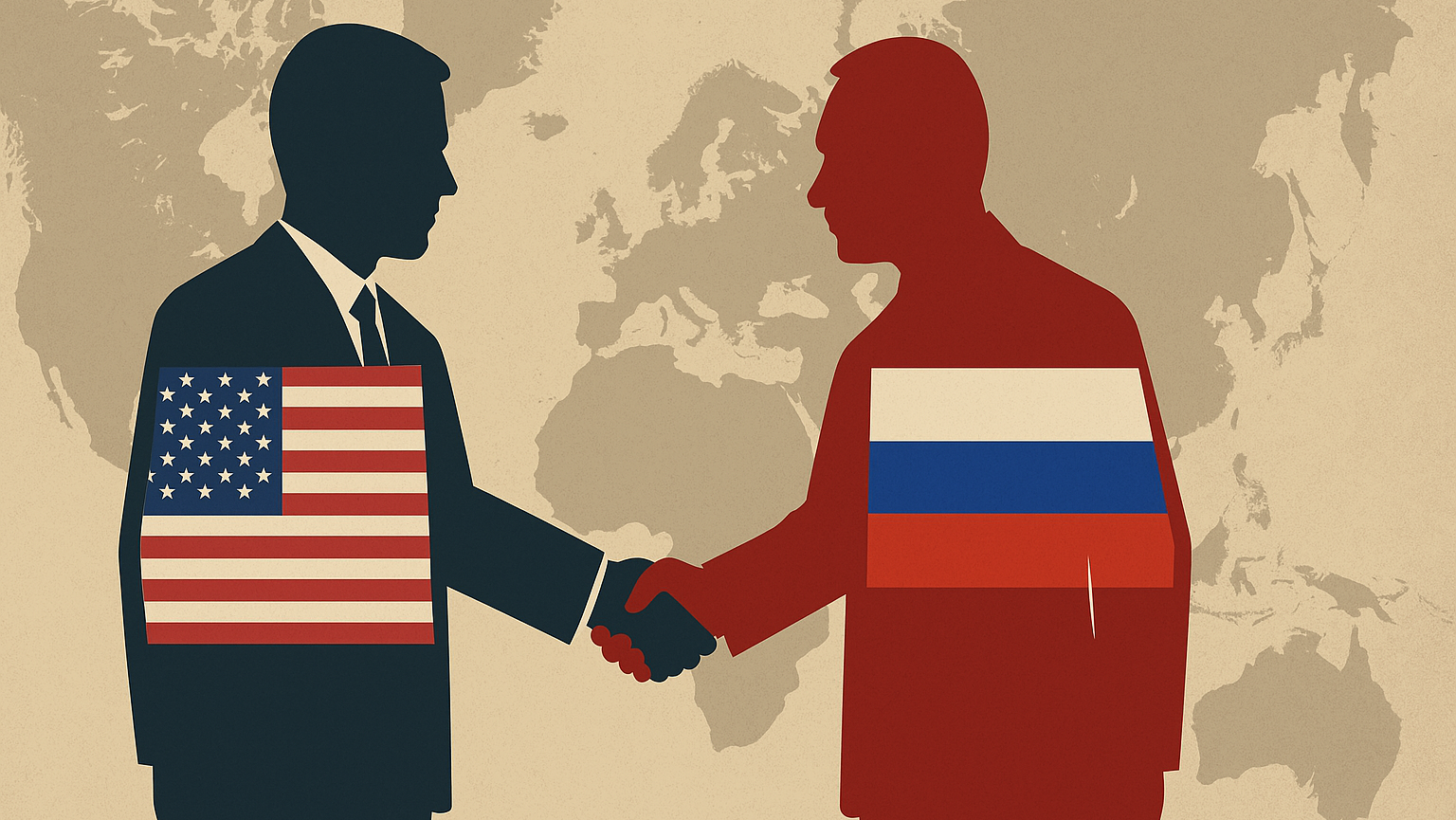A Changing International World Order
Al-Ittihad, UAE, March 9
The international order is undergoing a transformation. What was once confined to theoretical speculation is increasingly becoming a practical reality. The growing rapprochement between two major global powers, the United States and Russia, and their shared willingness to end the war in Ukraine, is accelerating the shift from possibility to near-certainty.
This is especially true if peace can be brokered without reverting to the post-World War II framework, which saw the division of the world into Western and Eastern blocs, underpinned by two military alliances: NATO and the Warsaw Pact, the latter of which dissolved with the fall of the Soviet Union.
It remains unclear whether this warming of relations will result in a new alliance or agreement, or merely a pragmatic understanding of mutual interests, outside the sphere of armed conflict that the world has intermittently experimented with in the past. However, one thing is certain: if the current US-Russia approach endures and yields tangible outcomes, the path toward changing the international system will take a significant and qualitative turn, setting the stage for further developments.
Initial discussions between the two powers have not been confined to Ukraine but have also addressed European security and the potential for Russian mediation in the Iranian nuclear crisis. A central Russian goal in the Ukraine conflict has been to reshape the security framework embodied by NATO, aiming to halt its expansion into Eastern Europe.
This system was initially based on two pillars: one defensive, aimed at countering the Russian (then Soviet) threat, and the other ideological, presenting a stark choice between the “free world” and totalitarian regimes. Since the fall of the Berlin Wall in 1989, which symbolized a victory for the Western capitalist bloc and a defeat for the socialist camp, the future of NATO has been a point of contention.
This holiday season, give to:
Truth and understanding
The Media Line's intrepid correspondents are in Israel, Gaza, Lebanon, Syria and Pakistan providing first-person reporting.
They all said they cover it.
We see it.
We report with just one agenda: the truth.


The rapid pace of German reunification and the exit of many Eastern European nations from Soviet influence led the United States and its Western allies to settle on a clear response: as long as the “threat” remained, NATO would continue to absorb and protect the newly liberated countries. However, this expansion has in turn become a perceived threat to the Russian Federation.
Periodic attempts at controlling this danger through US-NATO-Russian agreements have failed, and Ukraine’s push for NATO membership was seen by Russia as crossing a strategic red line.
From his first term, President Donald Trump expressed a desire to resolve the Ukrainian conflict and foster closer ties with Russia. At the time, the primary issue was Russia’s annexation of Crimea, but today, with Russia having seized 20% of Ukrainian territory, the war has reached an impasse, which has bolstered Trump’s argument that continued funding only serves to perpetuate the conflict.
This marks a distinct departure from the strategy of weakening Russia articulated by the Joe Biden administration and adopted by NATO. With the acceleration of normalization between Washington and Moscow, the imposition of the minerals agreement on Ukraine, and increasing pressure on its president, the Trump administration has brought about the beginning of a “neutralization of NATO.”
For the first time in eighty years, Europe, despite its internal divisions, is finding itself compelled to rely on its own resources to ensure its security, as the American security umbrella is gradually fading.
Change is still in its early stages, but it is likely to gain momentum with the conclusion of the war in Ukraine, based on its field outcomes—essentially, regardless of the sovereignty and legitimacy standards set by international law.
In this context, the ideological foundation of the Western liberal order will face further challenges: on one hand, the decline of the values articulated in the United Nations Charter may become more pronounced at the global level; on the other hand, the far-right movement in Europe will continue to rise, as it increasingly becomes the nexus between Trumpism and Putinism.
Abdulwahab Badrakhan (translated by Asaf Zilberfarb)

